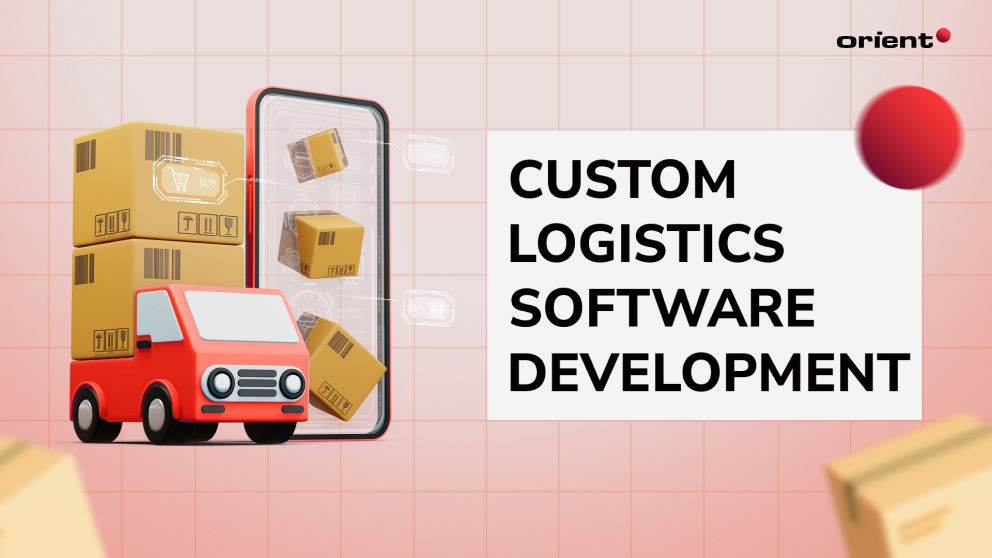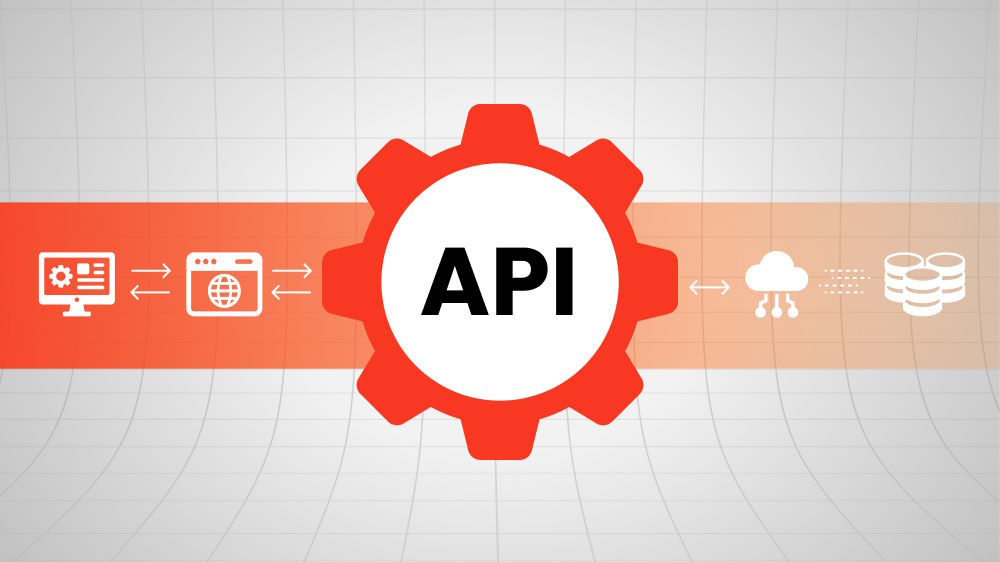
Revolutionize Your Business with Custom Logistics Software Development

Content Map
More chaptersThe transportation industry is an integral part of the global economy, constantly expanding and playing a crucial role across all sectors. It holds immense promise, but contemporary transportation businesses face the daunting task of efficiently managing vast volumes of data to ensure the successful delivery of goods. This presents a significant challenge.
The answer lies in the development of transportation software development, which offers an automated approach to streamline shipping and freight forwarding activities. By implementing such software, transport companies can simplify their freight operations, save valuable time, cut costs, and ultimately enhance their customer services. Among the various solutions available, custom logistics software development services stand out as a versatile and widely applicable option.
What Exactly is Custom Logistics Software Development?
Custom logistics software development refers to the software development process of creating tailored logistics software solutions specifically designed to meet the unique requirements and needs of logistics operations within a business or industry. It involves developing software applications, platforms, or systems that address the challenges and complexities faced in logistics management, such as inventory control, transportation management, supply chain visibility, and documentation administration.
Custom logistics software solutions differ from off-the-shelf software solutions because it is built from scratch or customized based on the specific business processes and workflows of the organization. It takes into consideration the company’s unique logistics requirements, industry regulations, desired features, and integration needs with existing systems or third-party logistics providers (3PLs).
By opting for custom logistics software development, businesses can have a solution that aligns precisely with their operational needs, allowing for greater efficiency, accuracy, and control in managing logistics processes. It empowers companies to optimize their supply chain management, improve customer satisfaction, reduce costs, and gain a competitive edge in the logistics industry.
How to Create Custom Logistics Management Software?

Every logistics software company must be tailored specifically for the organization that will utilize it. In order to achieve the most effective logistics and transportation management software, a thorough understanding of the brand, the desired functionalities of custom solutions, and the budgetary constraints is crucial.
Taking these factors into account, a logistics software development company follows a set of fundamental processes to build a custom logistics and transportation management system.
Define Requirements
The first stage in the process is to clearly define the demands and desires of the logistics management software. In this stage, it is essential to engage with stakeholders, including logistics managers, operations teams, and end-users, to gather comprehensive insights into their needs and pain points. By involving these key stakeholders, the development team can gain valuable input and ensure that the software meets their specific requirements.
During this stage, it is crucial to identify the specific challenges you want the software to address. This may include areas such as inventory management, order processing, transportation optimization, or supply chain visibility. By clearly documenting these requirements in detail, software engineers establish a solid foundation for the development process. These documented requirements will serve as a reference point throughout the software development lifecycle, guiding the development team in creating a solution that effectively addresses your organization’s specific challenges and goals.
Design the Software Architecture
When designing the software architecture, it is important to define the system components, modules, and their interactions. This involves considering various factors such as scalability, flexibility, integration capabilities, software security issues, and user experience (UX). During the design phase, utilizing tools like flowcharts, diagrams, and wireframes can greatly assist in visualizing the structure and flow of the software.
Develop Core Functionality
Start developing the core functionalities of the logistics management software based on the defined requirements. This may include features like:
- Order management
- Inventory tracking
- Route optimization
- Real-time tracking, reporting, and integration with external systems or APIs.
Follow best coding practices and utilize appropriate programming languages, frameworks, and tools to implement the desired functionalities.
Implement Additional Modules
Based on your specific needs, implement additional modules to enhance the functionality of the software. These modules can include:
- Warehouse management systems (WMS)
- Supply chain management (SCM)
- Customer relationship management (CRM)
- Manufacturing execution systems (MES)
- Document management
- Analytics and reporting, or any other modules relevant to your logistics operations.
Prioritize these modules based on their importance and impact on your business processes.
Conduct Rigorous Testing
Thorough involvement in transportation and logistics software testing helps the development team validate the functionality, integration capabilities, and quality of the software. They should verify that all features perform as expected by running functional tests. Integration testing should be performed to ensure seamless data exchange with external systems or APIs.
Furthermore, the team should conduct quality assurance testing to assess the software’s speed, scalability, and resource utilization. This ensures that the software can handle the expected workload efficiently. Additionally, security testing should be carried out to identify and address vulnerabilities that could compromise the integrity and confidentiality of the system.
During the testing phase, the development team should actively identify and fix any bugs or issues that arise. This includes addressing functional defects, performance bottlenecks, and security vulnerabilities. By promptly resolving these issues, the team ensures that the software is secure, reliable, and performs optimally.
Deployment and Integration
The development team should set up the necessary hardware and software configurations and ensure proper integration with existing systems, databases, or third-party services for seamless data exchange and process integration. This enables smooth data exchange and process integration between the logistics management software and other systems or services within the infrastructure.
Considering the sensitivity of the data involved in logistics operations, the development team should prioritize implementing robust security measures. This includes employing encryption protocols, access controls, and authentication mechanisms to safeguard sensitive data from unauthorized access or data breaches. They should also stay updated with the latest security best practices and periodically conduct security assessments to identify and address any vulnerabilities.
User Training, Support, and Continuous Improvement
To ensure the successful adoption of the logistics management software, your organization should provide comprehensive training to users. This responsibility lies with the training team, who will create user documentation, tutorials, and guides to help users understand and effectively utilize the software. Additionally, ongoing support should be offered to address any questions, issues, or feedback that arise during implementation and usage.
In order to gather insights and feedback for continuous improvement, collaboration should be fostered between your organization, the logistics and transportation software development company, stakeholders, and end-users. This collaborative effort involves maintaining an open line of communication to address evolving business needs. The development team, in particular, should embrace an agile development approach. This allows for iterations and enhancements to the software based on user requirements, market changes, and emerging technologies.
Benefits of Custom Logistics Software
Custom logistics software offers numerous advantages that can significantly enhance operational efficiency and improve overall supply chain management. Here are the key benefits logistics companies can gain from implementing custom logistics software:
Automate Workflows for Better Efficiency: Custom logistics software allows organizations to automate and streamline workflows, reducing manual errors and minimizing time-consuming administrative tasks. By automating processes, including order processing, inventory management, and shipment tracking, businesses can achieve higher levels of efficiency, eliminate bottlenecks, and expedite operations.
End-to-End Supply Chain Visibility: One of the primary benefits of custom logistics software is the ability to gain real-time visibility into the whole supply chain. From procurement to shipping, organizations can track and monitor every step, ensuring transparency and enabling proactive decision-making. This visibility empowers businesses to identify potential issues, optimize routes, and make informed adjustments to improve overall supply chain performance.
Optimize Inventory and Transportation Management: By accurately tracking inventory levels, businesses can avoid stockouts and overstocking, reducing holding costs and improving order fulfillment. With advanced transportation management features, custom software can optimize routes, consolidate shipments, and reduce transportation costs.
Analytics for Demand Forecasting and Performance Measurement: Custom logistics software often includes powerful analytics capabilities that enable organizations to gain insights into historical data, perform demand forecasting, and measure performance metrics. These analytics tools help businesses make data-driven decisions, identify trends, forecast demand accurately, and align inventory levels accordingly.
Faster Resolution of Issues and Improve Customer Experience: With comprehensive visibility and real-time data, businesses can quickly identify and address any issues that may arise throughout the supply chain. This proactive approach minimizes disruptions, reduces delays, and enhances customer satisfaction. By providing accurate delivery updates and timely notifications, custom software helps build trust and loyalty among customers, resulting in a positive brand reputation.
Selecting a Logistics Software Development Partner
Choosing the right logistics software development partner is crucial for the success of your business. A reliable and experienced partner can provide the necessary guidance and expertise to develop a robust logistics software solution tailored to your specific needs. Here are key factors to consider when selecting a logistics software development partner:
- Experience in the Logistics Domain for Right Guidance: Look for a partner with a deep understanding of the logistics industry. Experience in logistics operations and processes enables the development team to provide valuable insights and guidance throughout the software development lifecycle. They can offer industry-specific solutions and help you overcome challenges unique to the logistics domain.
- Expertise in Technologies Relevant to the Industry: Ensure that the partner has expertise in software development technologies and frameworks relevant to the logistics industry. They should be well-versed in developing software solutions that integrate with transportation management systems, warehouse management systems, and other logistics platforms. This expertise ensures seamless integration and compatibility with existing infrastructure.
- Delivers Projects on Time and on Budget: Timely delivery of projects within the allocated budget is crucial. Look for a partner with a proven track record of successfully delivering projects on schedule and within the agreed-upon budget. This demonstrates their reliability and commitment to meeting your business objectives.
- Support and Maintenance for Seamless Upgrades: Choose a partner that offers comprehensive support and maintenance services. The logistics software will require updates, enhancements, and occasional bug fixes. Ensure that the partner provides ongoing support to ensure the software remains efficient and secure. They should be attentive to your requirements and give assistance as soon as possible.
If you are considering a logistics software development partner, Orient Software stands out as a reliable choice. With a track record of delivering projects on time and within budget, Orient Software guarantees reliable and timely custom software development solutions. We also offer comprehensive support and maintenance services for seamless upgrades. Choose Orient Software as your logistics software development partner, and experience a partnership that not only meets but exceeds your requirements. Contact Orient Software today to discuss your logistics software development needs.






